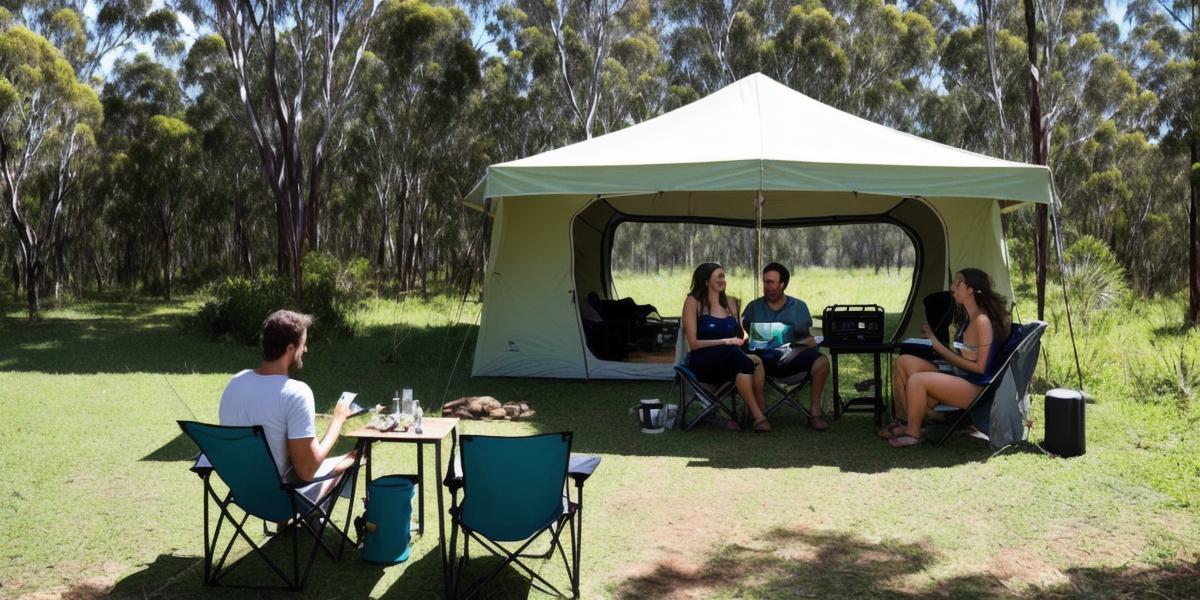Living Off-Grid in Australia: A Comprehensive Guide
Are you tired of the hustle and bustle of city life?
Do you long for a simpler, more sustainable way of living?
Look no further than living off the grid in Australia. In this comprehensive guide, we’ll explore everything you need to know about living off the grid in Australia, from the benefits to the challenges, and everything in between.
Benefits of Living Off-Grid in Australia
Reduced Environmental Impact
One of the biggest advantages of living off the grid is the reduced environmental impact. By using renewable energy sources like solar panels and wind turbines, you can significantly reduce your carbon footprint and help combat climate change. Additionally, by using composting toilets and rainwater harvesting systems, you can further minimize your impact on the environment.
Financial Freedom
Living off the grid can also provide financial freedom. By producing your own energy and water, you can save money on utility bills. Additionally, by growing your own food and raising livestock, you can reduce your reliance on grocery stores and save money on food expenses.
Improved Health and Well-Being
Living off the grid can also have a positive impact on your health and well-being. By spending more time outdoors and engaging in physical activities like gardening and hiking, you can improve your overall fitness and mental health. Additionally, by eating fresh, locally grown food, you can improve the quality of your diet and reduce your exposure to harmful chemicals and pesticides.
Challenges of Living Off-Grid in Australia
Initial Costs
The initial costs of living off the grid can be high. You’ll need to invest in renewable energy systems, water harvesting systems, and other equipment necessary for self-sufficiency. However, these costs may be offset over time by savings on utility bills and food expenses.
Limited Access to Amenities
Living off the grid can also limit access to certain amenities like internet, television, and cell phone service. While some areas may have limited connectivity, there are many ways to stay connected with technology, including satellite internet and solar-powered phones.
Education and Skills Required
Living off the grid requires a different set of skills and knowledge than traditional urban living. You’ll need to learn about renewable energy systems, water harvesting, and sustainable agriculture. Additionally, you may need to learn new trades like carpentry or plumbing to build and maintain your off-grid home.
Case Studies: Success Stories of Living Off the Grid in Australia
The Tiny House Movement
The tiny house movement has gained popularity in recent years as a way for people to live sustainably and affordably. Many tiny houses are built on wheels, making them easy to move to different locations. Additionally, tiny houses can be powered by solar panels and other renewable energy sources.
Permaculture Farms
Permaculture is a system of sustainable agriculture that focuses on using natural systems and resources to create a self-sufficient food production system. Many permaculture farms in Australia are off the grid, relying on renewable energy and water harvesting systems. Additionally, these farms often use organic farming practices, reducing the need for harmful chemicals and pesticides.
Off-Grid Homes
There are many off-grid homes in Australia that are built using sustainable materials like bamboo and recycled materials. These homes are designed to be energy efficient and self-sufficient, relying on renewable energy sources like solar panels and wind turbines. Additionally, many of these homes incorporate rainwater harvesting systems and composting toilets.
